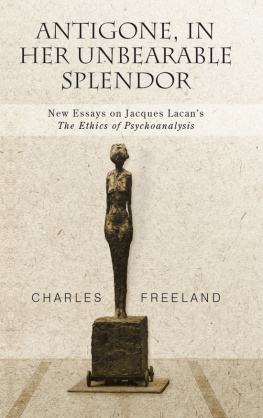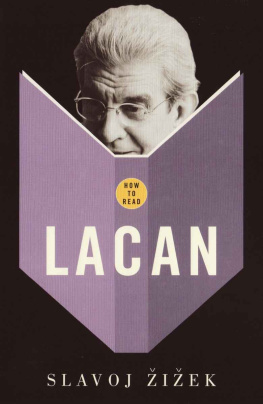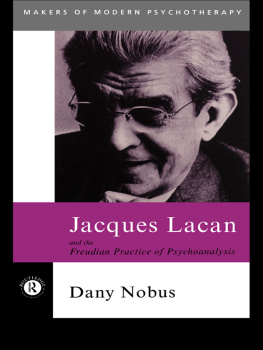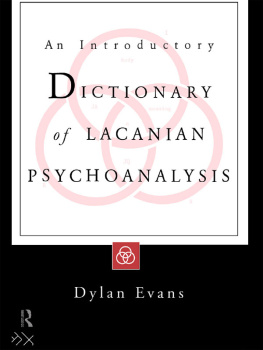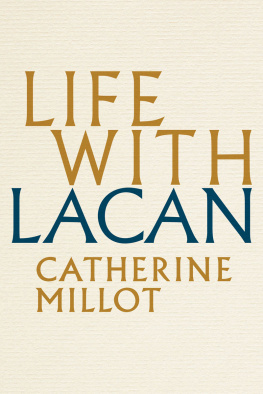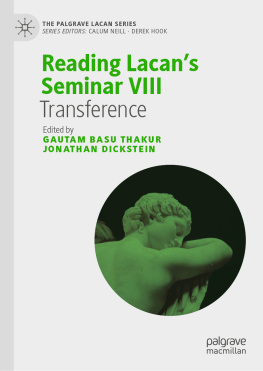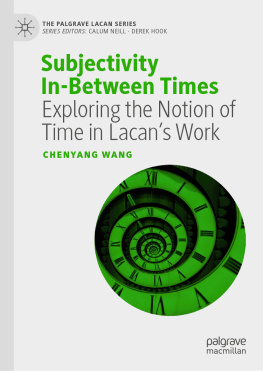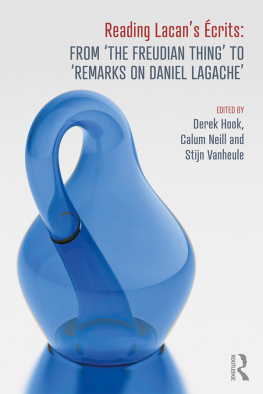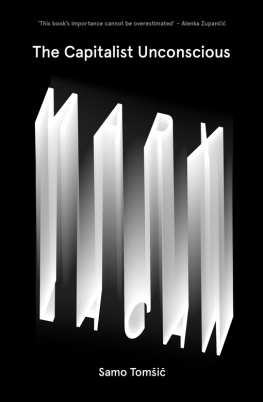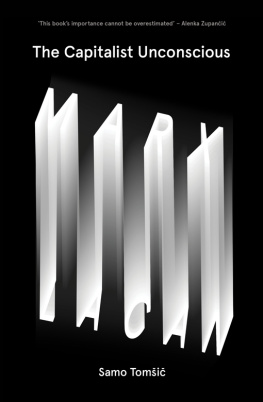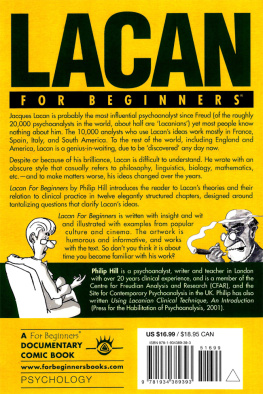SUNY series, Intersections: Philosophy and Critical Theory

Rodolphe Gasch, editor
ANTIGONE, IN HER UNBEARABLE SPLENDOR
New Essays on Jacques Lacan's
The Ethics of Psychoanalysis
CHARLES FREELAND

Cover image: Can Stock Photo Inc. /Frankix
Published by State University of New York Press, Albany
2013 State University of New York
All rights reserved
Printed in the United States of America
No part of this book may be used or reproduced in any manner whatsoever without written permission. No part of this book may be stored in a retrieval system or transmitted in any form or by any means including electronic, electrostatic, magnetic tape, mechanical, photocopying, recording, or otherwise without the prior permission in writing of the publisher.
For information, contact State University of New York Press, Albany, NY
www.sunypress.edu
Production by Eileen Nizer
Marketing by Michael Campochiaro
Library of Congress Cataloging-in-Publication Data
Freeland, Charles, 1947
Antigone, in her unbearable splendor : new essays on Jacques Lacan's the Ethics of psychoanalysis / Charles Freeland.
p. cm. (SUNY series, Intersections: philosophy and critical theory)
Includes bibliographical references and index.
ISBN 978-1-4384-4649-3 (hbk. : alk. paper)
1. Lacan, Jacques, 19011981. Ethique de la psychanalyse, 19591960. 2. PsychoanalysisMoral and ethical aspects. I. Title.
BF173.L1463F74 2013
150.19'5dc23
2012023540
10 9 8 7 6 5 4 3 2 1
PREFACE
To essay means to attempt. Hence, the following may be read as attempts at a philosophical reading of a difficult subject: namely, the place, the role, and the function of ethics in Lacanian psychoanalysis. Such a subject is best approached with a hypothesis, and my hypothesis is that especially in his seventh seminar, entitled The Ethics of Psychoanalysis, Lacan's psychoanalytic teachings became more closely and more urgently philosophical. The European traditions of philosophical ethics provided Lacan with a range of concepts and vocabularies that helped him to shape his own ideas and ideals concerning the ethics of psychoanalysis. In this regard, Lacan's seventh seminar was in constant dialogue with one of philosophy's most classical and perennial concerns: the questioning of the conditions, the limits, the scope, and the hopes of ethical thought and ethical life.
To test this thesis, the following essays take up key questions and perspectives in Lacan's work where his psychoanalytic practice both confronts and opens the philosophical traditions of ethical thought to new dimensions. The ethical ideals of self-search and of self-knowledge, the ethical challenge that one must take care of one's soul, the very question of who or what is the ethical subject, are examples of such intersections between the great European ethical traditions and the work of Lacanian psychoanalysis. Likewise, the limit experiences of death, truth, desire, transgression, and the human quest for happiness and the moral-ethical good, are all crucial areas of ethical experience transformed by the Lacanian conceptual approach. One pathos, if I may so call it, that Lacan's seminars and the great European traditions in ethics have in common is the notion that the human being comes into being as a subject, an ethical subject, somehow defined by a lack, as a soul in search of an object from which it has been separated, an object that has been lost, that shall be forever sought but never found or fully attained. The idealizing classical European philosophical tradition might have called this the True, the Good, and the Beautiful. But, guided by the Freudian hypothesis of the unconscious, Lacan began to think of it as the price, the gatekeeper's fee that had to be paid for this very coming into being of the subject. He has a term for this lost object: he calls it objet petit a, and in various other guises and formulations that we shall be examining, he calls it the Thing (das Ding) and the Real, objects of fantasy and foreboding. In any case, it is the key to understanding human desire and the essential horizons of human moral and ethical life. The following essays thus ask whether or not Lacan's teachings on ethics so obviously and directly constitute an anti-philosophy or whether they succeed in putting the philosophical questioning of moral and ethical life on a wider stage.
A couple of notes regarding the text: These essays were first presented as lectures given over the course of three seminars, the first of which was held at Thammasat University, Bangkok, Thailand, in 2006; the second, a three-day seminar to which I was invited by of the Department of Comparative Literature at the State University of New York at Buffalo in October of 2007; and the third, another seminar that again convened at Thammasat University, Bangkok, in December of 2008. The participants in those seminars, Krzysztof Ziarek, Ewa Ziarek, David Miller, and David Johnson, to name just a few, provided much valuable criticisms and questions that helped enormously in the development of this project. I especially thank Distinguished Professor Rodolphe Gasch, not only for his part in organizing the SUNY Buffalo seminars, but also for his encouragement in getting these lectures rewritten for their eventual publication as a book.
Because I do not take Lacan to have been a systematic thinker, I have decided to present my readings in the form of a collection of essays rather than as chapters in a continuously and systematically developed narrative. Each essay takes up the question of the philosophical or anti-philosophical dimensions of Lacan's ethics of psychoanalysis in terms of certain key concepts, sources, and texts to which he returned again and again over the course of his seminars. An overall chronological approach has been adopted in the order of presentation of these essays. The first essays concern the earlier seminars, especially Seminar VII, and the later essays deal with seminars and essays from the late 1960s and early 1970s. The essays try to develop working definitions of some of Lacan's terminology as it is pertinent to the perspective under discussion, so readers unfamiliar with such terminology might benefit by reading these essays in the order of their presentation. Readers more familiar with the Lacanian discourse may read the essays in any order they wish.
Please also note that references to Lacan's published seminars have been given in the text and not as endnotes. The references appear in the following example: (S7: 35). The S refers to Seminar, the number to the numbered book of the seminar. In this case, S7 refers to Lacan's seventh seminar, The Ethics of Psychoanalysis. The number(s) following the colon refer to the page number. I have used the standard English translations for Lacan's seminars where they are available. In some of these translations, the pagination in the French text is also given. Where the French pagination references are available, I have also given them. For the convenience of the reader, references to Sophocles' plays are also given in the text.
I have also chosen to italicize the word jouissance to show that it is a foreign word, in this case, a French word. I realize that many English translations of Lacan's terminology do not do this, but I have chosen to do so because there is no exact English translation for this overdetermined French word, and so I have left it as a French word and have accordingly italicized it.
Next page
